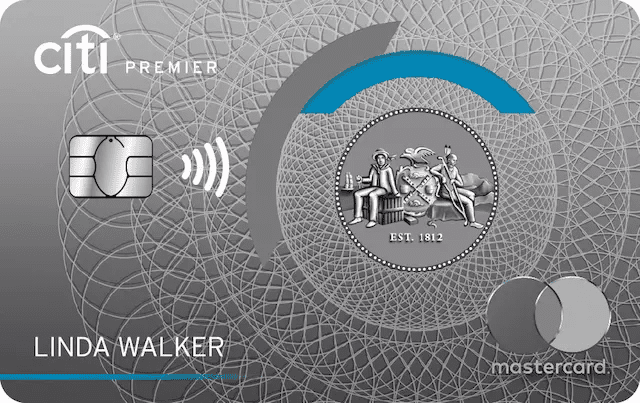Debt consolidation can be a lifeline for borrowers struggling with multiple high-interest debts. However, while many might consider a Capital One consolidation loan, it’s important to note that Capital One does not currently offer personal loans for this purpose. This guide will explore viable alternatives for debt consolidation, detailing the application process and essential factors to consider before committing to any consolidation loan.
Toc
- 1. Why Capital One Consolidation Loans Aren’t Available (And What to Do Instead)
- 2. Key Considerations for Debt Consolidation
- 3. Related articles 01:
- 4. Capital One Consolidation Loan Requirements: What You Need to Know
- 5. Navigating the Capital One Consolidation Loan Application Process
- 6. Understanding Capital One Debt Forgiveness
- 7. Frequently Asked Questions About Debt Consolidation
- 8. Current Trends in Debt Consolidation
- 9. Managing Your Debt After Consolidation
- 10. Related articles 02:
- 11. Conclusion: Charting Your Path to Financial Recovery
Why Capital One Consolidation Loans Aren’t Available (And What to Do Instead)

Capital One’s absence in the personal loan market for debt consolidation leaves many borrowers searching for other solutions. Understanding the debt consolidation landscape is crucial for those facing financial challenges, particularly individuals with less-than-perfect credit scores.
The Debt Consolidation Landscape
Debt consolidation serves as a strategic method for managing multiple high-interest debts by merging them into a single loan. For borrowers grappling with various credit obligations, knowing alternative options becomes imperative when Capital One consolidation loans are not available.
Key Considerations for Debt Consolidation
Financial Benefits and Potential Challenges
When exploring debt consolidation alternatives to Capital One, it’s essential to weigh both the benefits and challenges:
Advantages:
- Simplified Monthly Payments: Streamlining your payments into a single monthly payment simplifies budgeting, reduces stress, and minimizes the risk of missed payments, leading to improved financial organization.
- Potential Interest Rate Reduction: By consolidating high-interest debts, such as credit cards, into a lower-interest loan, borrowers can save significant amounts on interest payments over time. For example, a borrower with $20,000 in credit card debt at an average interest rate of 18% might consolidate it into a personal loan with a 9% interest rate. This could significantly reduce their total interest paid over the life of the loan, potentially saving thousands of dollars. However, it’s crucial to compare the total cost, including fees, across different loan offers before making a decision.
- Streamlined Debt Management: Consolidation can lead to better financial organization. Having only one payment to track helps you stay on top of your obligations and reduces the risk of missed payments.
- Improved Credit Score Potential: Successfully managing a consolidation loan can positively impact your credit score. Lowering your credit utilization ratio by paying off credit cards can also contribute to this improvement.
Potential Risks:
- Extended Repayment Periods: While consolidating debts can lower monthly payments, it may extend the loan term. This means you could end up paying more interest over the life of the loan if you’re not careful.
- Possible Higher Overall Interest: Conversely, some consolidation loans may carry higher interest rates than the average of the existing debts, especially if the borrower has a lower credit score. In such cases, the consolidation loan could end up costing more in the long run. It’s essential to carefully evaluate the APR (Annual Percentage Rate) of any potential loan and compare it to the weighted average interest rate of the existing debts.
- Risk of Additional Debt Accumulation: One of the significant pitfalls of debt consolidation is the potential for accruing new debt. If you do not change your spending habits after consolidating, you might find yourself back in a similar situation with more debt.
Alternative Lenders for Debt Consolidation
Since Capital One personal loan options are limited, consider these reputable alternatives:
- Avant
- Credit Score Range: Avant is known for considering borrowers with credit scores between 600 and 700. This makes them a viable option for those with less-than-perfect credit.
- Loan Amounts: They offer loans ranging from $2,000 to $35,000, providing flexibility based on your needs.
- Application Process: Avant has a streamlined application process that is user-friendly, allowing borrowers to apply online quickly.
- Upstart
- Comprehensive Evaluation: Upstart evaluates borrowers based on various factors beyond credit scores, including education and employment history. This holistic approach can result in competitive rates for those who might otherwise struggle to secure a loan.
- Loan Amounts: Upstart offers loans ranging from $1,000 to $50,000, giving borrowers ample options.
- Flexible Terms: Their flexibility in evaluating applicants can be beneficial for those with unique financial situations.
- Discover
- Targeted Borrowers: Although Discover primarily targets borrowers with stronger credit profiles, they do provide personal loans for debt consolidation that can help lower monthly payments and save on interest costs.
- Competitive Interest Rates: Discover is known for offering competitive rates, making them a solid choice for those who qualify.
- Loan Amounts: Discover offers personal loans up to $40,000, allowing for significant debt consolidation.
The lending landscape is dynamic. New lenders and fintech companies regularly emerge, offering innovative approaches to debt consolidation. Borrowers should always compare multiple offers from different lenders to find the best terms, considering factors beyond interest rates, such as fees, loan terms, and customer service reviews. Websites such as NerdWallet and Bankrate provide tools and resources for comparing loan offers.
2. https://phucsonglong.com/mmoga-marcus-personal-loan-alternatives-after-discontinuation/
3. https://phucsonglong.com/mmoga-credit-union-home-equity-loan-your-guide-to-lower-rates/
Capital One Consolidation Loan Requirements: What You Need to Know
While Capital One doesn’t offer direct consolidation loans, understanding typical lender requirements can help you prepare:
Standard Qualification Criteria
When considering debt consolidation loans from alternative lenders, be aware of the common requirements:
- Minimum Credit Score: Most lenders require a minimum credit score, often in the range of 600 to 660. However, some lenders, like Avant and Upstart, may have more flexible criteria.
- Stable Income Verification: Lenders will typically want to see proof of a stable income to ensure you can manage the monthly payments. This might include pay stubs, tax returns, or bank statements.
- Reasonable Debt-to-Income Ratio: A low debt-to-income ratio is crucial. Lenders want to see that your existing debts, including the new loan, are manageable relative to your income.
- Consistent Employment History: A solid employment history can bolster your application, showing lenders that you have a reliable source of income.
Preparing Your Application
To maximize your chances of approval with alternative lenders:
- Gather Necessary Documentation: Collect all required documents, including proof of income, identification, and details about your existing debts. Having everything ready will streamline the application process.
- Check Credit Report for Accuracy: Before applying, review your credit report for any errors. Disputing inaccuracies can improve your score and enhance your chances of securing a loan.
- Calculate Your Total Existing Debt: Understanding your total debt will help you determine how much you need to borrow for consolidation. This clarity will also aid in discussions with potential lenders.
- Prepare Income Verification Documents: Have your recent pay stubs or tax returns ready to demonstrate your income stability. This will help reassure lenders of your ability to repay the loan.
Online Application Strategies
Most alternative lenders offer streamlined online application processes. Here’s how to navigate them effectively:
- Complete Comprehensive Online Forms: Fill out the online application forms carefully, ensuring all information is accurate. This step is crucial for a smooth application process.
- Upload Required Documentation: Most lenders will require you to upload documents directly through their platform. Be sure to have digital copies of all necessary paperwork.
- Provide Detailed Financial Information: Be prepared to disclose your financial situation, including your income, existing debts, and monthly expenses. Transparency will help lenders assess your application accurately.
- Wait for Initial Approval or Further Instructions: After submitting your application, lenders may take a few days to review it. They may contact you for additional information or documentation.
Utilizing Loan Calculators
While a Capital One consolidation loan calculator isn’t available, many alternative lenders provide similar tools to help you:
- Estimate Monthly Payments: Loan calculators allow you to input different loan amounts, interest rates, and terms to see how much your monthly payments might be.
- Calculate Total Interest: Understanding the total interest you’ll pay over the life of the loan is crucial. This information can help you compare different loan options effectively.
- Compare Different Loan Scenarios: By adjusting variables in the calculator, you can explore various scenarios to find the best fit for your financial situation.
- Understand Potential Savings: Knowing how much you could save by consolidating high-interest debt can motivate you to pursue this option.
Understanding Capital One Debt Forgiveness
It’s crucial to distinguish between debt consolidation and debt forgiveness. Capital One does not offer formal debt forgiveness programs. Borrowers seeking relief should consider:
- Explore Negotiation with Creditors: Sometimes, creditors may be willing to negotiate lower payments or interest rates. This can be a viable alternative to consolidation.
- Consider Credit Counseling: Credit counseling agencies can provide valuable guidance and may help you negotiate better terms with your creditors.
- Investigate Debt Management Plans: These plans can help you consolidate your debts into a single monthly payment while working with a credit counselor to manage your payments.
- Consult Financial Advisors: Seeking professional advice can provide personalized strategies tailored to your financial situation.
Frequently Asked Questions About Debt Consolidation
Can I Consolidate All Types of Debt?
Most lenders allow consolidation of various types of unsecured debt, including:
- Credit Card Balances: High-interest credit card debt is commonly consolidated to lower overall interest payments.
- Personal Loans: If you have multiple personal loans, consolidating them can simplify your finances.
- Medical Bills: Unpaid medical expenses can also be consolidated, allowing for manageable monthly payments.
- Other Unsecured Debts: Various other unsecured debts may qualify, but secured debts like mortgages or auto loans typically cannot be consolidated in this manner.
How Does Consolidation Affect Credit Scores?
- Initial Slight Credit Score Decrease: Applying for a consolidation loan may result in a minor dip in your credit score due to a hard inquiry. However, this is usually temporary.
- Potential Long-Term Improvement: If you consistently make on-time payments on your new loan, your credit score can improve over time. This is due to reduced credit utilization and a positive payment history.
- Reduced Credit Utilization Ratio: Paying off credit cards with a consolidation loan can lower your credit utilization ratio, which is beneficial for your credit score.
What Are Alternatives to Debt Consolidation?
If debt consolidation isn’t the right option for you, consider these alternatives:
- Balance Transfer Credit Cards: These cards often offer promotional 0% interest rates for a set period, allowing you to pay down your debt without accruing interest.
- Debt Management Plans: These plans involve working with a credit counseling service to negotiate lower payments and interest rates with creditors.
- Personal Negotiation with Creditors: Directly negotiating with creditors can lead to lower payments or settlement offers.
- Credit Counseling Services: These services can help you assess your financial situation and provide tailored solutions.
Current Trends in Debt Consolidation
The rise of fintech lenders has increased competition and accessibility to debt consolidation loans. Many online lenders now utilize alternative data, such as bank account transactions and employment history, to assess creditworthiness, making loans more accessible to borrowers with less-than-perfect credit scores. Additionally, there’s a growing trend towards personalized debt management solutions, with some companies offering tailored plans that combine financial coaching with debt consolidation options.
Managing Your Debt After Consolidation
Once you’ve secured a debt consolidation loan, effective management is essential. Here are some practical strategies:
1. https://phucsonglong.com/mmoga-marcus-personal-loan-alternatives-after-discontinuation/
5. https://phucsonglong.com/mmoga-credit-union-home-equity-loan-your-guide-to-lower-rates/
Creating a Realistic Repayment Plan
Establish a clear repayment plan that outlines how much you need to pay each month and when payments are due. Adhering to this plan will help you stay on track.
Setting Up Automatic Payments
Consider setting up automatic payments to ensure you never miss a due date. This can help you avoid late fees and maintain a positive payment history.
Maintaining Responsible Spending Habits
After consolidation, it’s crucial to change your spending habits to prevent accumulating new debt. Create a budget that prioritizes essential expenses and limits discretionary spending.
Monitoring Credit Reports for Accuracy
Regularly check your credit reports for accuracy and monitor your progress. This practice will help you catch any errors and understand how your financial habits are affecting your credit score.
Seeking Professional Financial Advice
If you’re struggling to manage your debt effectively, consider consulting a financial advisor. They can provide personalized strategies and insights tailored to your unique financial situation.
Conclusion: Charting Your Path to Financial Recovery
Debt consolidation offers a strategic approach to managing multiple financial obligations. While Capital One consolidation loans aren’t available, numerous alternatives exist for borrowers with less-than-perfect credit.
The key is thorough research, careful comparison of lender options, and a commitment to responsible financial management. By understanding your options and preparing diligently, you can find a debt consolidation solution that aligns with your unique financial situation.
Remember: Every financial journey is personal. Don’t hesitate to seek professional guidance to make the most informed decision possible. By taking proactive steps and leveraging available resources, you can navigate your way to improved financial health and stability.










